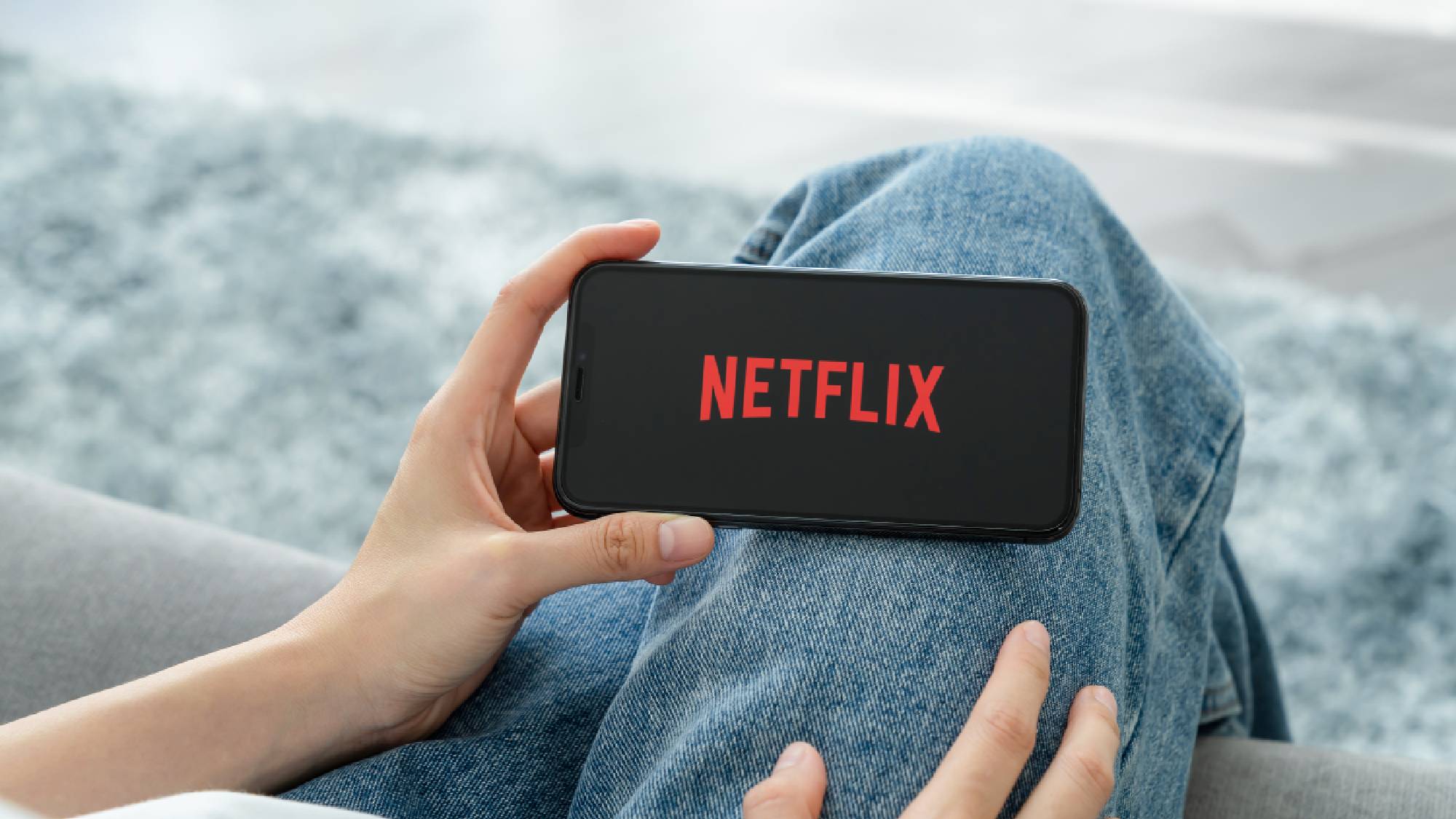I’m actually okay with ads on Netflix — but leave account sharers alone
Here's the right way to solve Netflix's problems

Netflix is not in a great place right now. The company's financial earnings release for Q1 2022 revealed that the streamer has lost 200,000 subscribers, the first time Netflix lost users in over a decade. While 700k subscribers were lost when Netflix pulled out of Russia, the company still expects to lose 2 million subscribers by July.
There are a lot of factors that could explain this mass exodus of subscribers. The most obvious is that Netflix recently increased its prices (again) and during a cost of living crisis for good measure. That’s had people jumping ship, and it doesn’t take a genius to see why. Lack of content, in the face of increased competition in the streaming market, plays a sizable role.
@tomsguide ♬ originalljud - S U P E R M O D E L S
Netflix sees things differently, or at least that’s what it seems from the outside. Instead of taking a good hard look at why people are leaving, Netflix seems to have decided that account sharers are the real villains of this story. Apparently over 100 million households are tuning in using someone else’s account, rather than paying Netflix for an account of their own. And Netflix's considering ads and account-sharing crackdowns to fight back.
It's not the first time this has happened. Last year Netflix decided to trial a poorly-thought out verification system, to prevent unauthorized account usage from outside the home. More recently Netflix trialled a system that would charge account sharers in Chile, Costa Rica and Peru an extra $3 a month.
The goal is to try and squeeze more money out of people, with Netflix now claiming that there’s a “large short-to mid-term opportunity” to monetize account sharing.
Netflix has over 221 million paying subscribers across the world, meaning there’s around 33% more people that aren’t directly paying Netflix for access. From the seats of a corporate board room, it’s going to be pretty easy to look at those figures with dollar signs in your eyes. Account sharers may be splitting the cost of a subscription, rather than mooching off someone else, but they’re not paying extra money to Netflix for the privilege.
Will cracking down on account sharers solve anything?
But is cracking down on account sharing, or charging people for the privilege, actually going to push people to create their own Netflix accounts?
Rather than addressing the issues of why people are leaving, Netflix is going after the people who are sticking around.
By its own admission Netflix is partly to blame for this situation. The streamer has several features designed to accommodate multiple users, but maintains that this was meant to make life easier for people in the same household. It also notes that account sharing is useful for growth, by helping more people access the Netflix catalogue.
The obvious mistake is assuming that all the people sharing Netflix accounts are willing to pay full price for the service should that loophole be closed down. Some people may set up their own account and pay full price right away, but others may leave Netflix entirely. That could be in protest of being booted off the service and made to pay, or because they don’t really care about what Netflix has to offer.
I know that I only subscribed to Netflix back in 2013 because I was able to split the cost of a subscription with my brother. Later, when my dad came around to the idea of streaming, rather than relying on satellite TV all the time, we upgraded our account to the most expensive tier that allowed us all to watch at the same time.
I eventually ditched Netflix several years later, after the first wave of major cancellations. The loss of The Santa Clarita Diet was the final straw for me, and I decided it wasn’t worth paying for a company that would unceremoniously scrap shows without a second thought. The past three years have proven Netflix hasn’t changed its tune, with well received shows seemingly getting the axe every other week.
These days I do still have access to Netflix, because my girlfriend manages to get free access through work. That said, I don't watch it a great deal, because I can never seem to find anything interesting to watch. There are only so many bake-off style shows competitions that a person can put up with, and investing my time and energy into a show that’s probably being cancelled in a year or two seems like a waste.
No account sharing means I wouldn't bother with Netflix at all, and the way things are right now I don't think I'd miss it.
Netflix ads may be on the way, which makes sense
The other big news coming out of Netflix HQ is that the company may cave and offer a cheaper subscription plan subsidised by advertising. Co-CEO Reed Hastings has said that the company is “open” to offering a lower-priced tier with ads, but fell short of actually announcing concrete plans.
It’s a model that several other streaming services have adopted, including Hulu, Peacock, HBO Max and Paramount Plus. The premise is simple: your monthly costs go down, and you can access the same catalog as before. But you’ll end up having to watch commercials at various points.
It makes sense to give people the choice to lower their bill, and sit through some commercials in exchange.
This is a big about-face for Netflix, since Hastings has been openly against the prospect of adding “the complexity of advertising” to the platform. The co-CEO said he was in favor of the subscription model’s simplicity, but admitted he preferred to offer more choice to the users. “Allowing consumers who would like to have a lower price and are advertising-tolerant to get what they want makes a lot of sense.”
My personal take is that paying for a service means that I shouldn’t have to suffer through advertising as well. It was one of my pet peeves of Xbox Live Gold back in the Xbox 360 days, where the dashboard would serve up ads despite me having an active subscription. Granted, Microsoft never claimed Xbox Live would be ad-free, but it got on my nerves nonetheless.
More recently I got some first-hand experience of just how liberating it can be to remove ads from streaming. Brits will be well aware of All 4, the on-demand service that is absolutely loaded with ads. Really bad ads too, like the god-awful yodelling Dominoes commercial that got on everyone’s nerves.
All 4 is free to use, which is why the advertising is so aggressive. Parent company Channel 4 is a commercial entity, after all, and that’s how it makes its money. But after reaching my breaking point I decided to give its ad-free tier, All 4 Plus, a try. That costs £4 ($5.21) a month, and seemed like a reasonable price to pay.
I’m coming up to my three-month anniversary of using All 4 Plus, and I regret absolutely nothing. It turns out £4 a month is a small price to pay to avoid some truly appalling advertising, and binge watch the latest batch of Four in a Bed episodes without interruptions.
That’s not to say I disagree with what Hastings has to say about ads. It makes sense to give people the choice to lower their bill, and sit through some commercials in exchange. I just know I wouldn’t choose to have ads on Netflix.
Ads on Netflix could make it appealing to some, especially now that cost of living is on the rise and subscription service payments are on the chopping block. Though it’s not clear how many people might sign up, and whether an ad-supported tier would cushion the blow suffered from enforcing anti-sharing measures in the future.
Bottom Line
Without account sharing I may not have signed up for Netflix at all. I certainly wouldn’t have signed up when I did, and this was back when the service cost a fraction of what it does now. I imagine a lot of other people are in the same boat, whether they’re splitting the cost with friends and family or mooching off someone else’s account.
But going after those people, especially while the service is at risk of hemorrhaging subscribers, feels like a mistake. Rather than addressing the issues of why people are leaving, Netflix is going after the people who are sticking around and potentially alienating them in the process.
An ad-supported tier isn’t the worst idea in the world, and it’s one that’s been adopted by several other streaming services over the years. Provided it’s done correctly, of course, and Netflix doesn’t serve up an obnoxious number of commercials before or during content. The last thing you want is an unwanted ad-break during Stranger Things season 4.
Sign up to get the BEST of Tom's Guide direct to your inbox.
Get instant access to breaking news, the hottest reviews, great deals and helpful tips.

Tom is the Tom's Guide's UK Phones Editor, tackling the latest smartphone news and vocally expressing his opinions about upcoming features or changes. It's long way from his days as editor of Gizmodo UK, when pretty much everything was on the table. He’s usually found trying to squeeze another giant Lego set onto the shelf, draining very large cups of coffee, or complaining about how terrible his Smart TV is.
-
varase I'm quite the opposite.Reply
I don't care about account sharers, but I don't want to see commercials.
This is something I'm paying for - not network TV.
Account sharing seems kinda like a cheat anyway. If ever household paid for their subscription, they probably wouldn't have to raise rates so often. -
missing egg So basically the author is saying that Netflix shouldn't crack down on account sharing, but also shouldn't put much advertising in, because that's annoying, and he doesn't want his Stranger Things watching interrupted? Aside from just expressing a desire to not have to pay for things, it's hard to discern what philosophy about commerce and capitalism is really being expressed here. Oh, and it seems beyond naive to assume that cracking down on account sharing and working to improve the appeal of their content are mutually exclusive endeavors.Reply
I hope the commentary about automobiles is more thoughtful than this opinion piece.
